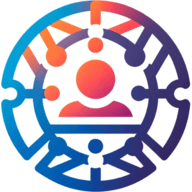In the ever-evolving world of business, technology continues to play a pivotal role. One industry that has seen significant transformation due to technological advancements is staffing. This blog post delves into the profound impact of technology on staffing, exploring how it has revolutionized the industry and what the future holds.
The Digital Transformation in Staffing
The staffing industry has undergone a digital transformation. Technology has become an integral part of the recruitment process, streamlining operations and enhancing efficiency. From sourcing candidates to onboarding, technology has simplified every step.
Artificial Intelligence (AI) is one of the key drivers of this transformation. AI-powered systems can sift through thousands of resumes in seconds, identifying the best candidates based on predefined criteria. This not only saves time but also eliminates human bias, ensuring a fair and transparent recruitment process.
Moreover, AI can predict hiring needs based on historical data, helping companies plan their recruitment strategies. It can also identify patterns in employee turnover, enabling companies to address issues before they escalate.
The Role of Big Data in Staffing
Big data is another technological advancement that has significantly impacted the staffing industry. It allows companies to analyze vast amounts of information, providing insights that can guide decision-making.
For instance, companies can use data to identify trends in the job market, such as the most in-demand skills or the industries with the highest growth potential. This information can help them tailor their recruitment strategies, ensuring they attract the right talent.
Furthermore, big data can provide insights into employee behavior, such as their performance, engagement levels, and satisfaction. Companies can use this information to improve their workplace culture, boost employee retention, and enhance productivity.
The Impact of Social Media on Staffing
Social media has also played a significant role in the evolution of the staffing industry. Platforms like LinkedIn, Facebook, and Twitter have become essential tools for sourcing candidates.
Recruiters can use social media to advertise job openings, reach a wider audience, and engage with potential candidates. They can also use it to research candidates, gaining insights into their skills, experiences, and cultural fit.
Moreover, social media allows companies to showcase their employer brand, attracting top talent. They can share content that highlights their values, culture, and benefits, giving candidates a glimpse into what it's like to work for them.
The Rise of Remote Work and Its Impact on Staffing
The rise of remote work, accelerated by the COVID-19 pandemic, has also influenced the staffing industry. Technology has made it possible for people to work from anywhere, opening up a global talent pool for companies.
This has changed the way companies recruit. They no longer have to limit their search to local candidates. They can source talent from anywhere in the world, increasing their chances of finding the right fit.
However, this also presents new challenges. Companies have to navigate different time zones, languages, and cultures. They also have to ensure that remote employees feel connected and engaged, despite not being physically present in the office.
The Future of Staffing: Emerging Technologies
As technology continues to evolve, it will undoubtedly bring new changes to the staffing industry. Emerging technologies like virtual reality (VR), augmented reality (AR), and blockchain hold great potential.
VR and AR can enhance the recruitment process by providing immersive experiences. For instance, companies can use VR to give candidates a virtual tour of their office or AR to simulate job tasks. This can help candidates get a better understanding of the role and the company, improving their decision-making.
Blockchain, on the other hand, can improve the verification process. It can provide a secure and transparent way to verify candidates' credentials, reducing the risk of fraud.
The Challenges and Opportunities of Technology in Staffing
While technology has brought numerous benefits to the staffing industry, it also presents challenges. For instance, the use of AI and big data raises concerns about privacy and data security. Companies have to ensure they handle personal data responsibly and comply with data protection laws.
Moreover, as technology becomes more sophisticated, there's a risk of over-reliance on machines. It's important to remember that while technology can aid the recruitment process, it can't replace the human touch. Building relationships and understanding people's motivations and aspirations are things that machines can't do.
Despite these challenges, the opportunities that technology presents are immense. It's an exciting time for the staffing industry, and those who embrace technology will undoubtedly reap the benefits.
Embracing the Technological Revolution in Staffing
The staffing industry has come a long way, thanks to technology. From AI to big data, social media, and remote work, technology has transformed the way companies recruit. As we look to the future, it's clear that technology will continue to play a pivotal role in staffing. The challenge for companies will be to leverage these advancements while maintaining the human element that is so crucial in recruitment.

